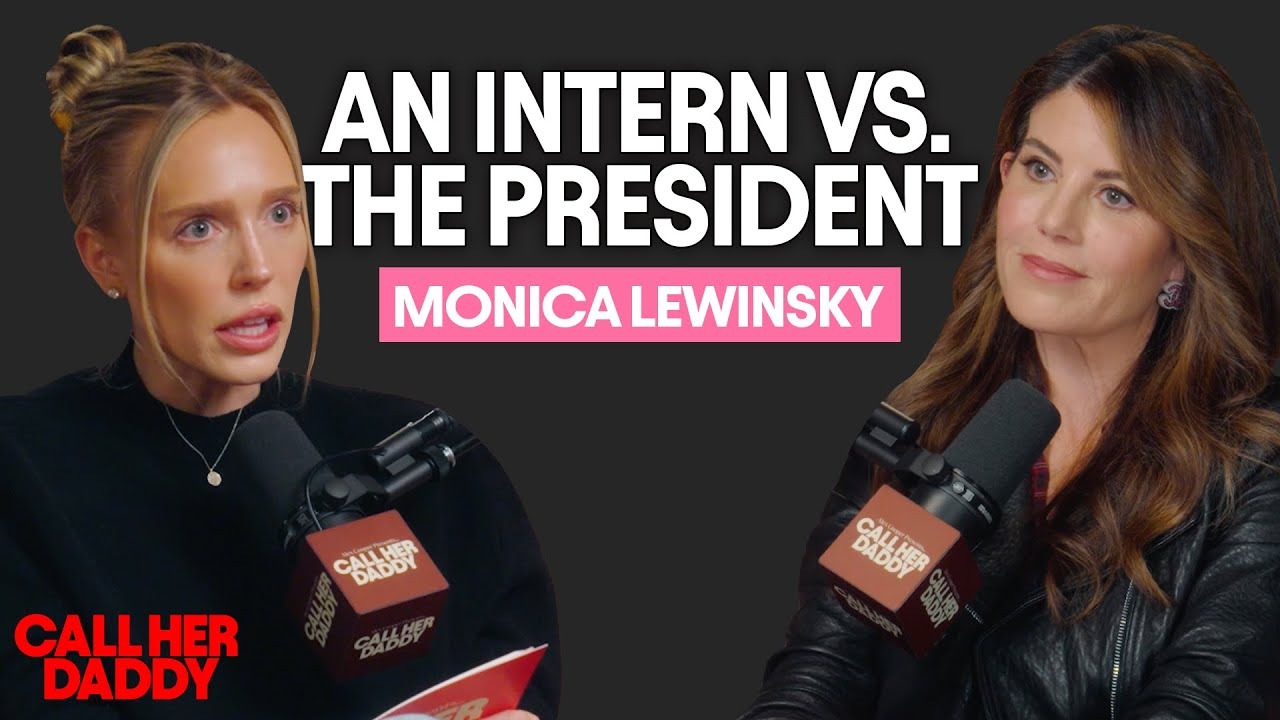
Her Campus Online Magazine: Monica Lewinsky’s Powerful Conversation on “Call Her Daddy”
Monica Lewinsky’s appearance on the “Call Her Daddy” podcast marks a significant cultural moment, one that highlights her ongoing journey of reclaiming her narrative and reshaping her public identity. As a guest on Alexandra Cooper’s widely recognized podcast, Lewinsky takes yet another bold step in redefining how the world perceives her, moving past the scandal that once dominated her name. For those who recall the media frenzy of the late 1990s, Lewinsky’s identity was often reduced to the Clinton impeachment trial and the relentless public scrutiny that followed. However, in this candid and revealing conversation, she reminds us that her story is not one of scandal or shame, but of resilience and the power of personal agency.
For many women who have grown up in an era increasingly aware of the media’s often unforgiving treatment of women in the public eye, Lewinsky’s evolution is both inspiring and deeply significant. The way she was vilified by the press serves as a stark reminder of how the media once operated, and, in some ways, how it still does. Yet, her transformation from a tabloid fixture to a respected advocate for privacy, dignity, and digital rights underscores the power of perseverance and the importance of shaping one’s narrative. Her story is a testament to the fact that individuals can reclaim their voices, even after being silenced by an overwhelming public discourse.
On “Call Her Daddy,” Lewinsky speaks with remarkable candor about the misogyny she endured, offering a deeply personal account of what it was like to be at the center of one of the most infamous scandals in modern political history. It is easy, with time, to forget the cruelty she faced: late-night talk show jokes, relentless media sensationalism, and a culture that sought to make her a punchline rather than a person. As a young woman thrown into a maelstrom of judgment, she bore the brunt of an affair shaped by power imbalances, consent, and systemic inequities. In her discussion with Cooper, Lewinsky pushes back against the notion that she was merely a passive participant in her own story. Instead, she sheds light on the strength it has taken to redefine her identity, not only for herself but also for others who have been similarly vilified by the press.
Lewinsky’s story is particularly relevant today, as it intersects with critical conversations about women’s autonomy, digital privacy, and the power dynamics that still shape our world. The societal evolution in discussions around consent and media accountability in the wake of the #MeToo movement has provided a framework for understanding what Lewinsky endured, and why her voice is so vital. As young women navigating college life, we exist in a digital landscape where social media has made public figures of all of us, often without our consent. The rapid dissemination of personal information, the permanence of online content, and the potential for public scrutiny have reshaped our understanding of privacy. Lewinsky’s advocacy resonates because we, too, recognize the risks inherent in a world where our personal narratives can be hijacked and distorted.
Lewinsky’s appearance on the podcast underscores the continued relevance of the #MeToo movement and the broader reckoning with issues of power and accountability. For women navigating higher education and the professional world, her transformation from a symbol of scandal to an advocate for justice is particularly powerful. For so long, her story was told by others, with little regard for her own voice. Now, she stands as an emblem of strength, using her platform to advocate for those who have been silenced, misrepresented, or reduced to a single narrative. Her journey challenges us to rethink how we, as a society, engage with public figures, particularly women, and how we can foster more compassionate and nuanced discussions in an era of relentless digital exposure.
Perhaps what makes Lewinsky’s story most compelling is her refusal to be defined by the past. Her conversation on “Call Her Daddy” takes place on a platform known for its unfiltered discussions of dating, relationships, and modern womanhood. Yet, this episode transcends the usual format, providing a space where Lewinsky can assert control over her own story, articulate the complexities of her experiences, and remind us of the importance of shaping our own identities. By doing so, she exemplifies that the ability to shape our identities lies within us, not in the hands of the media, society, or those who seek to diminish our worth. For college women across the country, Lewinsky’s story offers a crucial lesson in owning one’s narrative despite external scrutiny. In an age where public perception can shift in an instant and digital footprints are nearly impossible to erase, her ability to reclaim her voice serves as a beacon of hope. Her story illustrates the enduring power of self-reflection and the fight for dignity and dignity in an often unforgiving world.
In a world where our identities are often shaped by public perception, Monica Lewinsky’s story is a powerful example of reclaiming control. She proves that a person’s past does not have to dictate their future, and that self-definition is a choice, not a consequence. Her ability to challenge the narrative imposed on her is a reminder that we are not confined by how others see us. Instead, we have the agency to shape our paths, push back against limiting labels, and determine how our stories unfold.
Post a comment